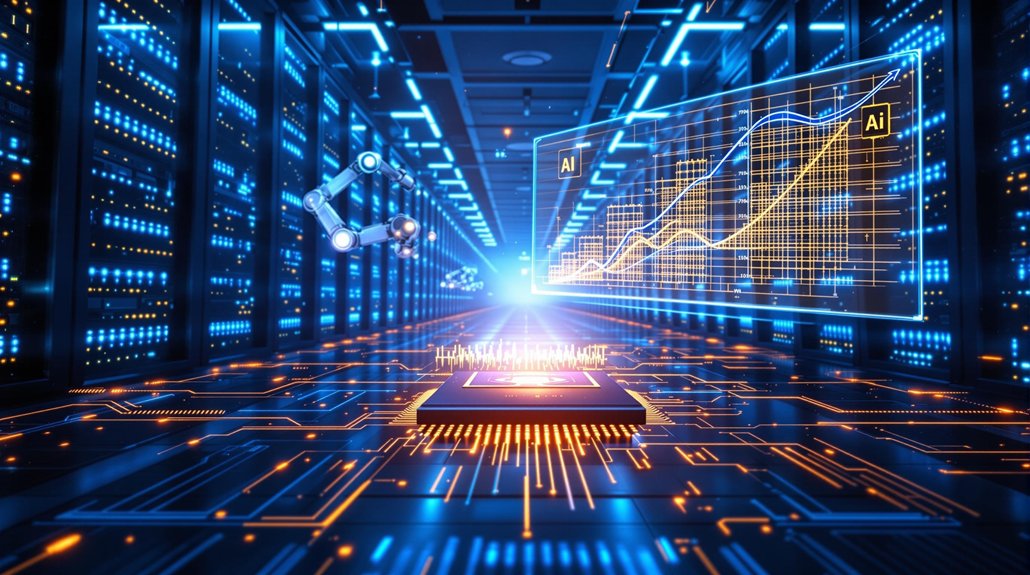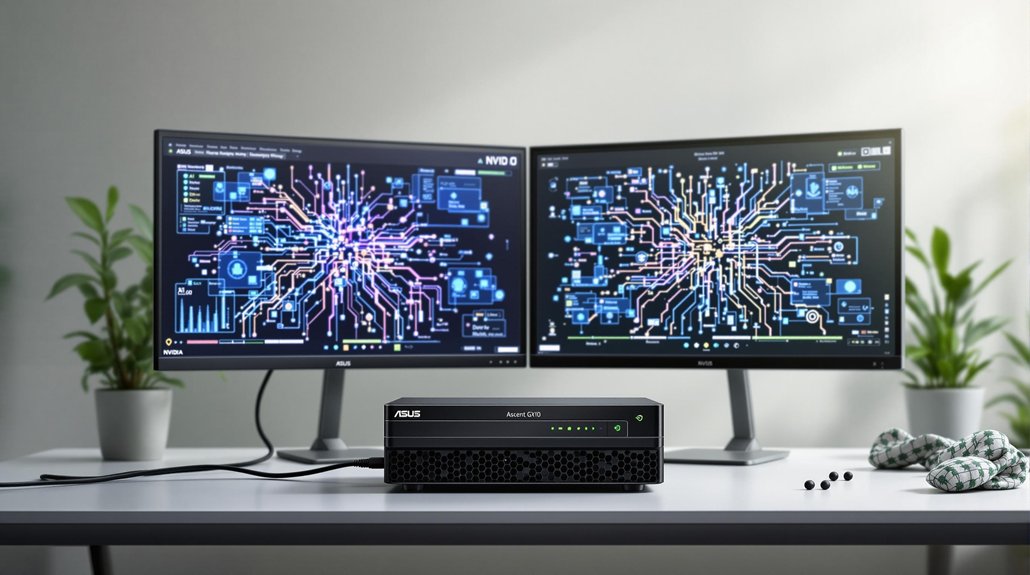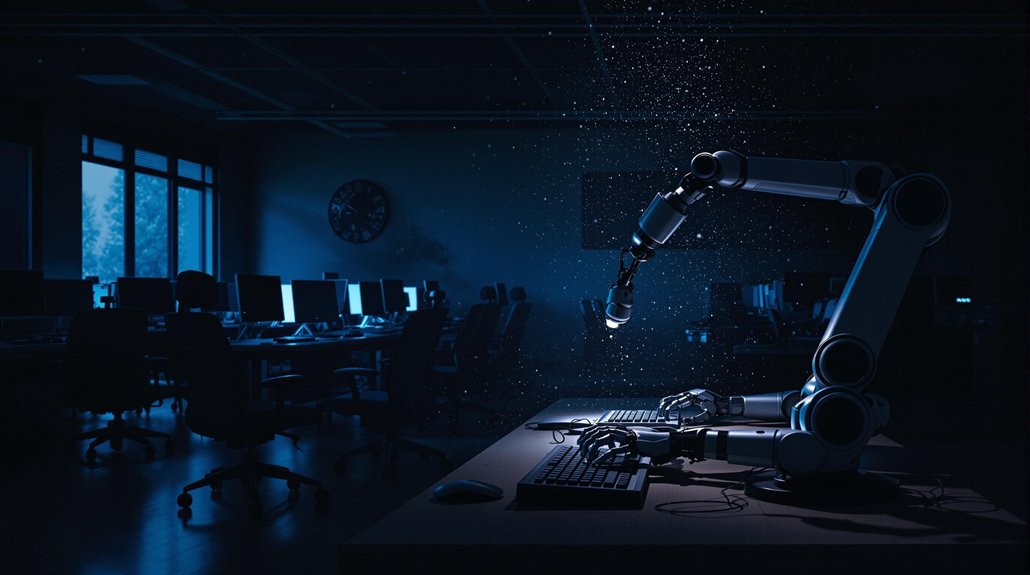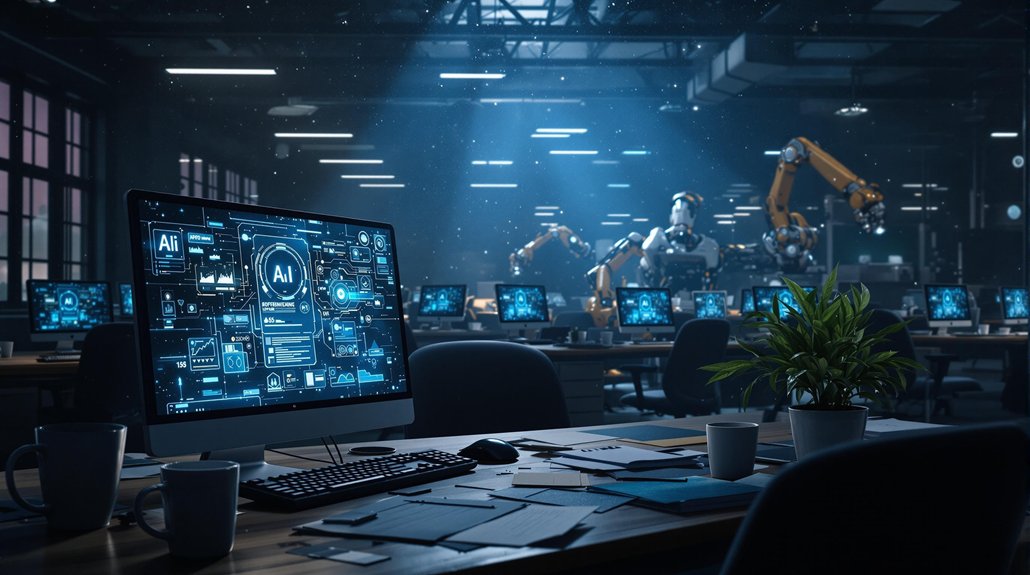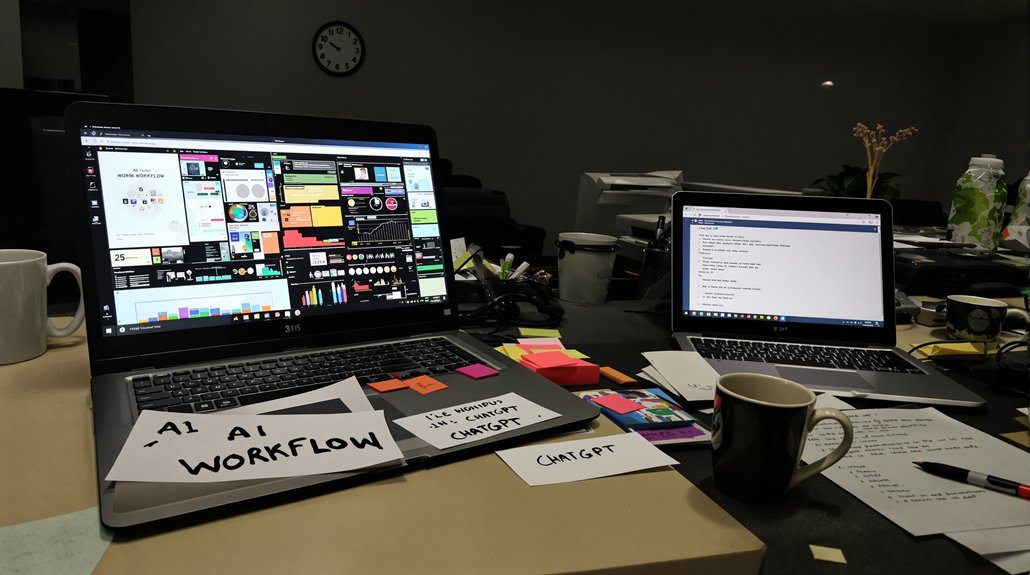AI systems now complete in minutes what would take humans weeks or months. Models like GPT-4 achieve 86% accuracy on complex reasoning tests. This rapid advancement has shocked experts as AI capabilities have grown from below-human to superhuman in under five years. With 77% of businesses using AI technology and predictions of $15.7 trillion added to the global economy by 2030, the productivity transformation is already underway.
Revolution is happening in the world of technology as artificial intelligence makes unprecedented gains. AI systems now outperform humans in language and image recognition tests, with models like GPT-4 reaching 86% accuracy on complex benchmarks. This puts AI close to human expert levels in many areas. Some AI capabilities jumped from below human to superhuman in less than five years, a pace that’s shocking experts.
Companies are racing to adopt these powerful tools. About 77% of businesses are using or exploring AI, with 33% regularly using it in at least one business function. Customer service, cybersecurity, and digital assistants top the list of popular AI applications. Most companies now see AI as a top priority in their business plans.
AI has moved from experimental to essential, with three-quarters of businesses now embracing its transformational potential.
The market reflects this enthusiasm. The global AI market reached $136.55 billion in 2022 and could hit $407 billion by 2027. That’s a yearly growth rate of 36.2%. Investment in AI has exploded, growing 30 times larger over the past decade. Experts project this trend will continue with an estimated 38% growth rate in the global AI market by 2025.
AI’s economic impact could be massive. Experts predict AI will add $15.7 trillion to the global economy by 2030. It might boost labor productivity growth by 1.5 percentage points over ten years and improve employee productivity by 40%. The rise of multimodal AI is enabling more intuitive human-computer interactions across various formats including text, images, audio, and video.
The job market is changing too. While AI may eliminate 85 million jobs by 2025, it could create 97 million new ones. Data specialists are in high demand, with jobs like data engineer and scientist topping AI-related job postings.
Generative AI is quickly becoming mainstream. About 79% of people have used generative AI for work or personal tasks, with 22% using it regularly at work. Most expect significant industry changes from these tools within three years. The strategic value of this technology is especially evident as 40% of businesses now depend on AI for inventory management and supply chain optimization.
As AI continues its rapid advance, it’s transforming from handling simple four-minute tasks to tackling projects that would take humans months to complete. This exponential leap in capability signals a new era in technology.
